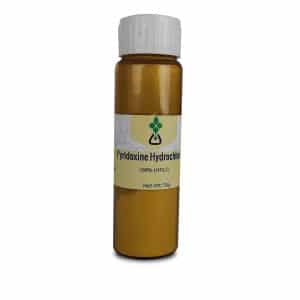Description
Pyridoxine, also known as vitamin B6, is a type of vitamin B6 that is commonly found in foods and taken as a dietary supplement.
As a supplement, it is used to treat and prevent pyridoxine deficiency, sideroblastic anemia, pyridoxine-dependent epilepsy, certain metabolic disorders, side effects or complications of isoniazid use, and certain types of mushroom poisoning. It is used orally or by injection.
It is usually well tolerated and has no side effects.
Sometimes its side effects include headache, numbness and drowsiness. Normal doses are safe during pregnancy and breastfeeding.
It is in the family of group B vitamins; And it is necessary to make amino acids, carbohydrates and lipids.
Dietary sources include fruits, vegetables, and grains.
History:
Pyridoxine was discovered in 1934, isolated in 1938 and first synthesized in 1939.
This supplement is on the World Health Organization’s list of essential medicines, which are the most effective and safest medicines needed in a health system.
Pyridoxine is available as a generic drug without a prescription.
The wholesale cost in developing countries is around $0.59 to $5.50 per month.
Pyridoxine is added to foods, such as breakfast cereals in some countries.
To obtain these tissue culture materials, please contact Noor Sanat Tehzih Ferdous Company:
Mrs. Frosty
Expert in tissue culture equipment and laboratory materials
09924040145

